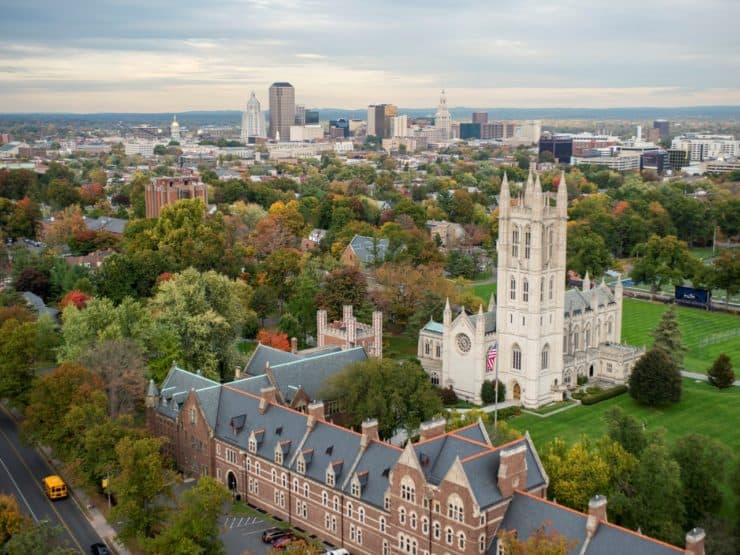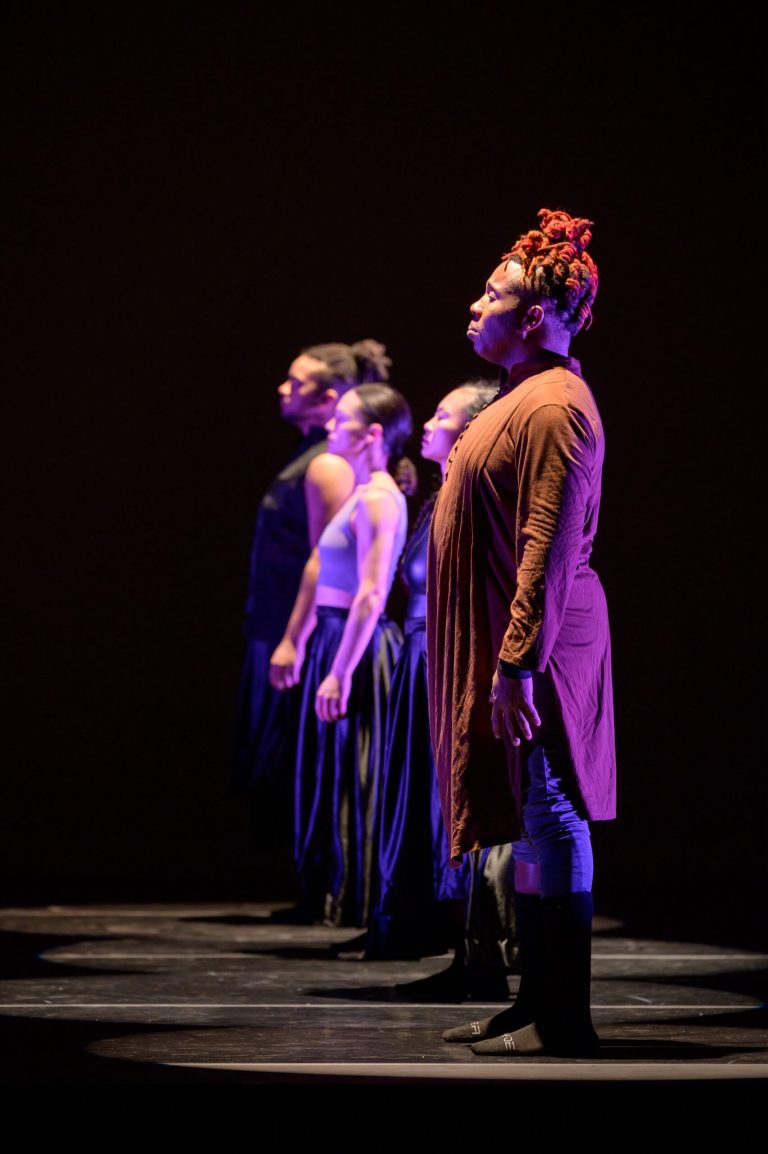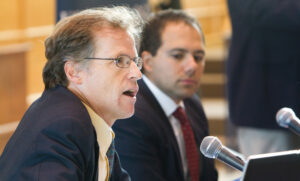Jack P. Carroll ’24
News Editor
President of the College Joanne Berger-Sweeney and members of the senior administrative staff convened in a virtual town hall via Zoom to discuss the fall semester, return to campus, and COVID-19 policies before students and families on Monday, Feb. 15.
The town hall began with fall data on the spread and response to COVID-19 at Trinity presented by Chief of Staff to the President Jason Rojas. According to Rojas, there were a total of 72 cases among on-campus students, 50 cases among off-campus students, as well as 16 cases among employees and affiliates. Also, a total of 53,473 COVID-19 tests were conducted with an average turnaround time of 22 hours. In addition, Rojas indicated that 190 students were “formally warned” for COVID contract violations and 25 students were required to leave campus to study remotely.
The College had previously refused to share the number of students who had been formally warned and removed from campus. Vice President for Student Success and Enrollment Management told the Tripod in September that the College “feel[s] it’s best to acknowledge the actions of students who are showing care and concerns for each other” rather than “focus[ing] on some mistakes that have been made.”
The Tripod previously reported that Trinity removed 15 students from its Hartford campus “as a result of significant COVID-19 conduct violations.” In an email addressed to students, faculty and staff, Rojas indicated that 14 students who lived in campus housing attended a local bar and that one student violated the “COVID-19 guest policy.”
At the town hall Monday, DiChristina also provided a recap of course offerings and student engagement at Trinity during the fall semester. During the presentation, DiChristina reported that out of a total of 497 courses, 49% were remote, 15% were hybrid, and 36% were in person. Also, there were a total of thirty Zoom events hosted, along with 5 “Grab-n-Go” events, an involvement fair, virtual trivia, and bingo.
Regarding the spread of COVID-19, DiChristina later stated that Trinity’s “testing, quarantine, and isolation protocols worked to limit the spread of the virus.” DiChristina further noted that there was “no evidence” of the “virus being transmitted in classroom or sanctioned activities.” For the Spring semester, DiChristina stated that “parents and families need consistent, clear, and frequent communications to help them make good decisions regarding personal and community health and safety.”
As previously reported in the Tripod, Trinity recorded a total of 124 Covid-19 cases, a figure which remained the highest in the NESCAC. Also, in October, the Tripod reported that Trinity placed infected students on the same floor as non-infected students in the Stowes and Clemens dormitories, and a single unit in the Vernon dormitory without any notice to residents. This move was not initially made public by the College; parents and residents of the Stowes and Clemens dormitories were also not made aware of the possibility of the use of these spaces as isolation facilities when registering for housing.
When asked about Trinity’s efforts to arrange student housing to avoid overcrowding and decrease the probability of student exposure to the virus, Rojas informed the Tripod in an emailed response that “student housing will operate in the same manner that it did in the fall.”
Regarding Trinity’s move in plans for the spring semester, Dean of Student Life and Director of the Bantam Network Jody Goodman indicated that arriving students are expected to have completed an at-home quarantine that began on February 4th. In addition, students are required to submit a PCR COVID pre-arrival test as well as a second PCR test upon arrival. Afterwards, students are to quarantine and complete coursework online from Feb. 22-Mar. 1 with COVID-19 testing twice a week.
As the Tripod previously reported, Trinity’s quarantine period is significantly shorter than some other peer institutions in Connecticut: Yale University, similarly situated in another urban setting, New Haven, requires its students to remain in quarantine for a month. According to the Yale Daily News, the institution of a month-long quarantine came from the guidance of “the state of Connecticut and at a time when viral cases are significantly higher than they were in the fall.”
Rojas clarified for the Tripod that Trinity is “not imposing a 14-day quarantine” and that a “14-day quarantine is not required of colleges and universities who were given the flexibility to determine their own quarantine periods.” Rojas also noted that the College believes that its “quarantine policy together with our frequency of testing is sufficient for our community.”
However, according to a press release from Connecticut Governor Ned Lamont, the state does require a ten-day quarantine for any residents and visitors returning from any state outside of the “immediate region,” which includes New York, New Jersey, and Rhode Island.
Vice President for Communications and Marketing Angela Paik Schaeffer highlighted Monday the College’s changes to its COVID-19 reporting for the Spring semester. In addition to weekday updates, Trinity’s Covid-19 Dashboard now displays a short list of operational details (classes, dining, campus activities, etc); the total number of students either in isolation and quarantine; data showing conditions in Hartford and the state of Connecticut; as well as the turnaround time for test results (stating “delayed” if test results take longer than 36 hours).
As previously reported by the Tripod, Trinity and Wesleyan were the only colleges in the NESCAC which declined to update their dashboards on a daily basis during the fall semester. Trinity uses the Broad Institute, a project by MIT and Harvard, to process test results, which is also the partner for most other NESCAC institutions.
Furthermore, Schaeffer noted that the Campus Alert Level System has been changed to allow for “a more precise response.” The system will now include a “Campus Transition Phase” to manage time periods when large numbers of students are arriving or departing from campus.
In response to questions about the possibility of spring sports, Berger-Sweeney replied that the NESCAC presidents have been meeting regularly to determine “whether it is safe to engage in conference play.” Berger-Sweeney then went on to state that the “primary factor” that is “motivating” the discussions about the return of athletics is the “health and safety of our students.” Furthermore, Berger-Sweeney made note of the spread of new COVID-19 variants as well as the decision of the University Athletic Association (which includes schools such as the University of Chicago, New York University, and Brandeis University) to cancel their spring seasons.
When discussing vaccine distribution, Practice Director of Student Health Services for Campus Care Martha O’Brien stated that Trinity is partnering with Hartford Healthcare to determine who is eligible to receive the vaccine as well as how to distribute the COVID-19 vaccine among members of the campus community. When citing state DPH regulations for vaccine distribution, O’Brien indicated that the state of Connecticut is currently in “Phase 1B” which includes individuals aged 65-74. O’Brien further noted that the state estimates that the phases that include college students will not occur until “mid-to-late spring.”








+ There are no comments
Add yours